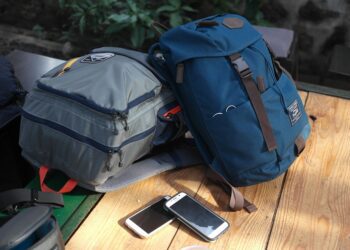Traveling the world is a dream for many people, but the thought of the high costs associated with it can often deter individuals from pursuing this passion. However, with a little bit of planning and a willingness to be flexible and creative, it is possible to explore the world without breaking the bank. Here are some tips for budget travel that will allow you to experience new cultures, meet new people, and create unforgettable memories without emptying your wallet.
First and foremost, it is important to set a budget for your trip and stick to it. Determine how much you can afford to spend on transportation, accommodation, food, activities, and souvenirs, and plan your itinerary accordingly. Be realistic about your expenses and be prepared to make sacrifices in order to stay within your budget.
When it comes to transportation, there are several ways to save money. Consider traveling during the shoulder seasons or off-peak times, as flights and accommodation are often cheaper during these times. Look for budget airlines, use flight comparison websites to find the best deals, and be flexible with your travel dates and destinations. Additionally, consider using alternative forms of transportation such as trains, buses, or ridesharing services to save money on getting around.
Accommodation can also eat up a large portion of your budget, but there are ways to cut costs. Consider staying in budget accommodations such as hostels, guesthouses, or Airbnb rentals, which often offer cheaper rates than hotels. Look for accommodation that includes amenities such as breakfast or kitchen facilities, so you can save money on meals. Consider camping or couchsurfing as alternative options for accommodation, which can be a fun and unique way to experience a destination.
Food can be another major expense when traveling, but there are ways to save money without sacrificing the culinary experience. Look for local markets, street food stalls, and affordable restaurants where you can sample authentic cuisine at a fraction of the cost of touristy restaurants. Consider cooking your own meals using local ingredients, or picnicking in parks or public spaces for a budget-friendly dining option.
When it comes to activities and sightseeing, research free or affordable attractions in your destination. Many museums, galleries, and cultural sites offer discounted or free admission on certain days or times. Take advantage of free walking tours, explore parks and nature reserves, or simply wander the streets and soak up the atmosphere of a new place. Consider purchasing city passes or attraction bundles to save money on admission fees.
Lastly, be mindful of your spending habits and avoid unnecessary expenses. Set a daily spending limit and track your expenses to ensure that you stay within your budget. Consider using cash instead of credit cards to avoid overspending, and look for ways to save money on souvenirs and gifts, such as buying locally made products or shopping at markets and thrift stores.
In conclusion, budget travel is all about being resourceful, flexible, and open to new experiences. By setting a realistic budget, planning ahead, and staying mindful of your spending, you can explore the world without breaking the bank. So pack your bags, grab your passport, and embark on an adventure that will create memories to last a lifetime, all while staying within your budget.








